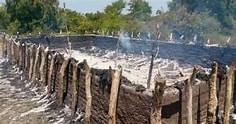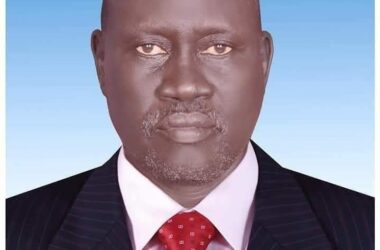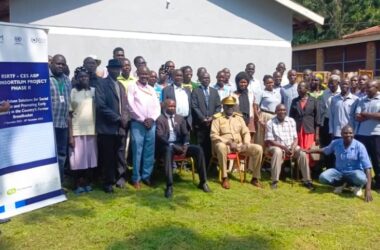Civilians grieve as leaders relish
By Oyet Alfonse
The protection of civilians is morally a topical issue at the forefront of global discourse, which has taken a prominent role in universal dispositions. It is a sole responsibility, a legal obligation, and a high-profile concern of governments, international organizations, and civil society to protect civilians.
The concurrent incidents in Warrap State, Leer (Unity State) and Mugali (Magwi-Nimule) of Eastern Equatoria State including other parts of the country are some of the occurrences are quite alarming as it has caused loss of properties and civilians’ lives.
Government and its peace partners should pity the poor population who continuously remain victims of attacks, torments and other inhuman activities.
Considering the term of revitalized pace agreement politicians have to begin drum up support in preparation for the forthcoming election, I don’t know whom they would expect to vote for them and why?
If I can ask, when will you stop the brutal killing, and when you repatriate refugees from camps back to their homebased villages?
When will transport Internally displaced persons (IDPs) to their residential homes?
Leaders, why do you despise the inhabitants of this country over their rights?
And, why don’t you make available most of the vital basic needs and services for them?
Will you really ask for their votes tomorrow?
These questions have really troubled my mental thinking, and I doubt if any of you can answer even one; for the reason that you were not able to pay five months salaries for civil servants, yet you have already pocketed five-years oil money in your pouch.
Okay, when do you think these citizens can benefit from the decision they made during the referendum?
There is stagnating economy, high youth unemployment and unequal distribution or access to income, which creates the foundations for the marginalization of whole population groups that’s why it creates a climate of hopelessness, and makes people more receptive to strategies of violence.
The security stability is a matter of survival and must be prioritized in the country. In countries where cultural or ethnic groups feel there is economic, political and social inequality, conflicts are more likely, and the future will continue to face insecurity.
Poverty is one of the main causes of hunger in any country and South Sudan in particular. Many individuals and families in South Sudan have to make a trade-off between buying food and paying for other expenses such as medical expenses, rent, school expenses and others.
Countries with armed conflicts are often the worst-scoring countries in the Global Hunger Index (GHI) with regard to their hunger levels. Our country South Sudan is one of these countries which face high level of hunger in the region.
Armed conflicts undermine the food and nutrition security of people in many respects, especially in our new nation. Destructions and Displacement, mean that farmers can no longer tend their fields and regularly lose their entire possessions to those who had access to firearms and always feels superior.
Roads and agricultural infrastructure in many parts of the country which are known for their agricultural potentiality were destroyed. As many foods can no longer be obtained or are simply too expensive, people eat less and, mostly, a more unbalanced diet. This did not only lead to an insufficient nutrient supply but also starvation of locals.
Both political and religious leaders should know that political settlements do not operate separately from their societies, and in the long-term they need to gain deeper social legitimacy. Therefore, to gain deeper social legitimacy, political and social elites are required to mobilize supporters; thus, leaders should find any means to end all other inequality tendencies for those displaced grassroots to come back in their homes.
Government must know that achieving a top-down political settlement between elites at national levels may not be sufficient to sustain state-building if it is not reflected at the local level, or if it excludes some groups from participation as this can provide an incentive for alternative elites to mobilize supporters against the settlement.
States can be ‘fragile’ when large numbers of people living within their boundaries are disconnected from state institutions, or when state institutions are accountable only to elite minority in the society and this exactly what is happening in our country.
Considering the extent of corruption and violence in the country, it’s not surprising that South Sudan suffers serious inflation rates in the region.
For this reason, there should be inclusive strategy in fighting poverty and through supporting civilians. We need to note that negotiations to end civil wars have a major bearing on the durability of political settlements. In particular, the inclusiveness of the negotiating process and its outcomes, such as new political, economic and constitutional arrangements, profoundly improve the long-term legitimacy and stability of the post-war dispensation.
Nevertheless, achieving adequate inclusiveness and forging stable pacts among elites is extremely difficult in war torn, deeply divided societies. Inclusive elite bargains have been achieved in some countries, such as Zambia including South Sudan, through political parties. However, in the absence of parties with clear programs, or formal or informal requirements for inclusivity, elections may not be an effective vehicle to achieve lasting elite bargains.
In countries like Ghana, an informal convention has meant that the presidents have generally included people from the major regions and ethnic groups in their governments. More formal provisions for inclusive government are in place in Nigeria, where the ‘Federal Character Principle’ informs appointments to ensure that major groups participate in power.
However, when talking about our country South Sudan on persistent inequalities, corruptions and conflicts, the majority poor population continue to suffer and stand in front of the misery, poverty and starvation.



